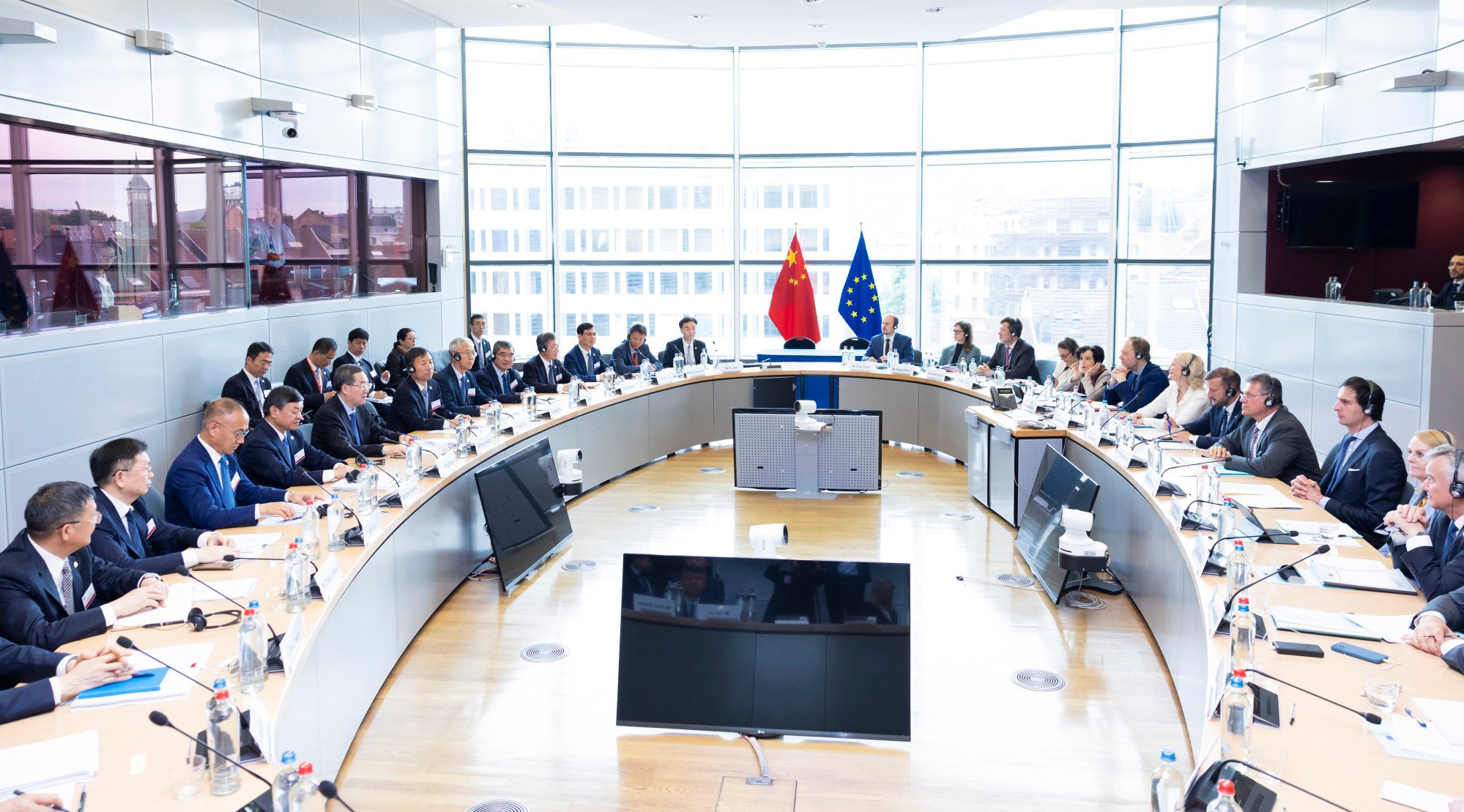Ding ranks No 6 in China’s Communist Party hierarchy and is a member of its all-powerful Politburo Standing Committee.
He also urged the EU to “enhance the consistency of its cooperation policies with China in the fields of environment, climate and economy and trade … [and] avoid setting up green barriers that interfere with normal economic and trade cooperation”.
“The two sides should resolve trade frictions through dialogue and consultation. China is unwavering in its determination to safeguard its legitimate interests,” Ding said.
Ding kicked off his Brussels visit on Monday as part of a five-day trip to Europe that will also take him to Luxembourg.
His trip comes just days after the EU imposed high-profile tariff hikes of up to 38 per cent on Chinese EVs.
The bloc blames China’s state subsidies for flooding the European market with cheap products that undercut local competitors. It is also carrying out anti-subsidy investigations into Chinese solar panel and wind turbine manufacturers.
Maros Sefcovic, executive vice-president of the European Commission – the EU’s executive arm, co-chaired the climate talks with Ding.
The Slovak diplomat, who also leads the EU’s green agenda, said the bloc was willing to properly resolve differences on EVs with China through dialogue.
“China has a decisive influence in global affairs, and maintaining good relations with China is vital to the EU,” Sefcovic was quoted as saying in the Xinhua report.
“The EU appreciates China’s strong measures and obvious results in promoting green and low-carbon development, and is willing to deepen cooperation with China in areas such as addressing climate change and protecting the ecological environment.”

Trade tensions between China and the EU have continued to grow as the bloc pushes for a supply chain “de-risking” agenda targeting Beijing in a bid to address their long-standing trade imbalance. The EU’s largest trade deficit is with China, hitting about €280 billion (US$300.6 billion) last year.
The EU, which has been pushing for a green transformation and aims to become carbon neutral by 2050, has also ramped up measures to support local energy sectors. However, its green agenda has faced challenges at home from economic problems since the Ukraine war hit supply chains and trade, and the rise of populism and trade protectionism.
Despite divisions with the EU over trade and Russia’s invasion of Ukraine – Beijing’s position on which has been harshly criticised by Brussels – China has been seeking to improve its relations with the bloc amid deepening rivalry with the United States.
“We need to work together to implement the important consensus reached by Chinese and EU leaders, push for more fruitful cooperation on green transformation, and consolidate the momentum of stable and sound China-EU relations,” Ding told Sefcovic at the climate talks.
The annual High-Level Environment and Climate Dialogue mechanism between China and the EU was launched in 2020.
In Luxembourg, a founding member of the EU, Ding is expected to meet leaders of the grand duchy and attend the Second Zhengzhou-Luxembourg “Air Silk Road” Forum for International Cooperation on Thursday.
The air silk road programme aims to connect Zhengzhou, the capital of China’s central Henan province, with cities in Europe and Southeast Asia for exchanges of “goods, people and ideas”. The airfreight route between Zhengzhou and Luxembourg opened in 2014.

